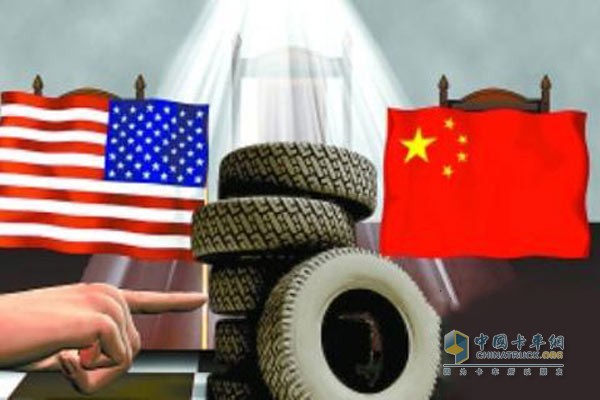On January 24, 2016, Shandong, which accounted for half of China’s tire production, took the lead to release signals that significantly removed the industry’s capacity.
Guo Shuqing, governor of Shandong Province, emphasized the need to resolutely promote the excess capacity of the seven high-pollution, high-energy-consuming industries such as tires and steel.
It has been observed that the collapse of China's tire overseas market has added to the pressure on overcapacity.

Tire overseas export market blocked
China's largest tire exporter
In 2009, the tire market was hot and many companies made a lot of money. Driven by profits, many tire companies are free to invest in expanding their production scale. In particular, the all-steel radial tire industry and the semi-steel radial tire industry have witnessed an upsurge in investment in huge capacity.
Some local governments have been eager for quick success and profit, ignoring the actual market capacity for pursuing political achievements, striving to promote the expansion of the local tire industry, and even reducing the market access conditions for tires, fuelling the investment in low-end tire production capacity.
In 2013, domestic tire investment was mainly concentrated in the Shandong region centered on Guangrao.
For example, a tire company in Shandong Guangrao added 1,080,000 new steel tires, and is also building 5 million semi-steel passenger car tires; another tire company in Shandong Guangrao has decided to add 2.5 million full-steel heavy-duty tires. And 6 million semi-steel passenger car tires production capacity.
Many tire companies are targeting overseas markets, and China has rapidly developed into the world's largest tire production and exporter.
In 2014, the production of Chinese radial tire tires reached 630 million, an increase of 8% year-on-year; it accounted for more than 30% of the world's total production of tire tires for the world's meridian tires. Of these, 40% are exported.
In that year, the United States had a 30% share of the Chinese tire overseas market and was the largest overseas market for Chinese tires. Domestic passenger car and light truck tire manufacturers are very dependent on the US market.
Tire overseas market collapse
On August 10, 2015, the U.S. Department of Commerce issued a "double anti-dumping" (anti-dumping and countervailing) tax on Chinese passenger and light truck tires in the "Federal Gazette" and came into effect.
Qian Ruiji, chief engineer of the Tien Qiang Group Co., Ltd. and director of the Tire Research Institute, said: "The United States' dual-revolutionary' restrictions on China's passenger and light truck tire exports are very severe."
In the first four months of 2015, affected by the US “double reverse†investigation on Chinese tires, China exported 21.26 million tires to the United States, which dropped 29.7% year-on-year. There are more than 200 tire companies involved, and the amount involved is about 3.37 billion U.S. dollars. Up to 1 million industrial workers in the upstream and downstream industries are threatened by falling income or unemployment.
According to statistics from China Rubber Industry Association, in 2015, the operating rate of China-related tire companies suddenly dropped from 90% to about 55%.
The “double reverse†in the United States has led to a sharp decline in the number of Chinese tires exported to the United States, further accentuating the crisis in China’s tire overcapacity.
Subsequently, the European Union rejected the certification of tires that failed to meet the second phase of the Labelling Act. This means that from November 2018, the EU will ban the sale of "non-compliance" tires.
Subsequently, Chinese tire companies have moved to the Middle East market. On October 22, 2015, the GSO (Gulf Standards Organization) issued a notice that starting from January 1, 2016, the seven countries in the Gulf began to implement the "Tire Labeling Act." This undoubtedly increased the difficulty of selling Chinese tires to the Middle East.
Qian Ruiqi pointed out in particular: “The proportion of foreign brand cars in China’s entire vehicle industry is very large. In Chinese-foreign joint venture vehicle companies, foreign parties, especially Japan and South Korea, insist on using foreign-brand tires and do not consider using Chinese tires to protect their original. There is a tire supplier. This is one of the reasons for the excess capacity of Chinese tires."
A large number of tires are not sold, and many tire companies have to reduce production or stop production. Some tire companies that rely on the export market have even faced a crisis of closure.
Air Bag
Pu Material Air Bag,Air Bag,New Design Air Bag,Fashionable Air Bag
Grand Dragon Sports Company Limited , https://www.golfyy.com